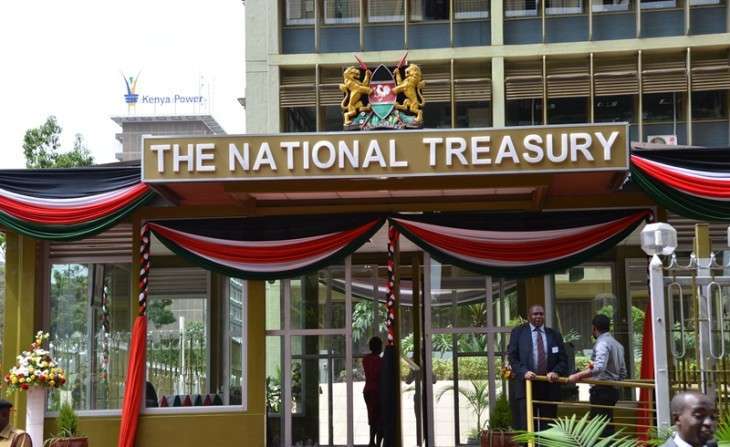Mbadi Explains How Kenya Raised Ksh193 Billion to Pay Old Debt Early
Share
The Government of Kenya has successfully raised USD 1.5 billion (Ksh193.5 billion) from international investors to refinance existing debt and improve the country’s fiscal stability.
The announcement was made by National Treasury Cabinet Secretary John Mbadi, who said the funds will be used to repay the outstanding USD 1 billion Eurobond due in 2028 ahead of schedule.
Speaking on Friday, Mr. Mbadi said the move demonstrates the government’s “commitment to responsible debt management, timely repayment of obligations, and protection of Kenyans from abrupt financial shocks.”
He noted that the transaction was a strategic step to smoothen the country’s repayment profile and strengthen investor confidence.
Structure of the Transaction
According to the Treasury, the amount was raised in two tranches — a 7-year bond worth USD 750 million with a yield of 7.875%, and a 12-year bond of USD 750 million at 8.8%.
Together, the blended rate stood at 8.7%, which is 1% lower than what Kenya would have paid at the start of 2025.
“This rate is a clear sign that Kenya’s credibility in international markets is improving,” Mbadi said.
“By refinancing our existing obligations at lower costs, we have secured more favorable repayment terms and extended the maturity profile of our debt,” he echoed.
He added that this was the third successful Eurobond transaction since 2024, further underscoring the administration’s focus on prudent fiscal management.
Strong Investor Demand
The bond sale received overwhelming interest from international investors, with total bids exceeding USD 7.5 billion, five times the targeted amount.
Mbadi attributed this to renewed global confidence in Kenya’s economy.
“Most of the investors came from leading fund managers in the United States and the United Kingdom, showing that the international financial community recognizes Kenya’s stability and growth potential,” he stated.
The Treasury boss noted that this strong response was “a testament to Kenya’s improving economic outlook, sound monetary policies, and transparency in debt management.”
Economic Benefits
The successful transaction is expected to reduce Kenya’s interest burden, ease pressure on taxpayers, and free up funds for key national priorities.
“This deal allows us to redirect resources toward vital sectors such as roads, healthcare, education, and social programs that directly benefit Kenyans,” Mbadi explained.
He further emphasized that lengthening the debt maturity period would give the government “more breathing space” in managing public finances while maintaining macroeconomic stability.
Commitment to Fiscal Prudence
Mbadi reaffirmed that the Treasury will continue implementing measures to ensure the country’s debt remains sustainable.
“Our objective is to stabilize debt levels without compromising development. Kenya will continue to meet all its obligations on time,” he assured.
The National Treasury maintained that the government’s proactive approach to debt repayment and refinancing reflects its broader goal of achieving economic resilience and long-term fiscal discipline.

The National Treasury building in Nairobi CBD. PHOTO/FILE.
You Might also Like




